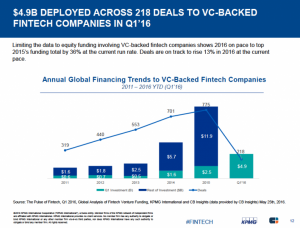Crypto attacks have surged in tandem with the rising popularity of digital currencies, emphasizing the need for robust security measures. To safeguard against these threats, users must employ multi-factor authentication, maintain updated software and wallets, and be cautious of phishing attempts. Educating oneself on the latest types of attacks and remaining vigilant while conducting transactions is crucial.
We’re just two months into 2018 and $2,653,302,364+ of real money has already been spent to buy virtual money. Cryptocurrencies — whether regulated or not — have buyers all over the world, even in countries where their status lies in the limbo.
However, just like real money, virtual money is also being stolen. And just like real money investment scams, the virtual currency space, too, has its share of investment scams with cheats floating schemes promising lucrative returns and running away with all the money.
Let’s look at some of the most common crypto attacks and how regulation can bring them down.
ICOs and the Disappearing Act
ICOs (or Initial Coin Offerings) is a means of crowdfunding that allows new ventures/startups to raise capital without following the regulated processes and compliance needed by venture capitalists, stock exchanges, and banks.
While cryptocurrency ICOs intend to raise money for building the proposed ground-breaking blockchain solutions, scamsters only use them to loot. Their modus operandi is the same: Announce an ICO. Lure investors. Collect the cash and disappear.
The Benebit scam is one such recent ICO scam. In its whitepaper, Benebit had proposed a revolutionary customer loyalty blockchain solution. But it did a runner with about 4M USD when someone reported that Benebit’s website’s photos were stolen from some school’s website.
Phishing and Crypto Attacks & Thefts
When dealing with virtual currencies, customers face the same risks as they face when doing net banking. Cryptocurrency users are prone to all kinds of cyber attacks like phishing, password hacking, trojan software and others.
IBM’s X-Force research group states how cyber criminals have modified TrickBot, a banking trojan, to target cryptocurrency trading platforms by redirecting the virtual currency to their wallets during transactions.
Coincheck, a cryptocurrency exchange from Japan, was a victim of a cyber stealing attack and lost $530 million of its users money. Another Japan-based bitcoin exchange company, Mt. Gox, had in 2014 lost $400 million of its users’ funds. Although it promised to return the lost money, it ended up filing for bankruptcy.
Unlike traditional banks or card processing companies, cryptocurrency exchanges can’t do much to recover virtual currency.
Crypto Attack: ‘Cashing’ in on the Hype
When a technology is so new and disruptive as blockchain, it creates hype. A stream of scamsters use nothing but this hype and lure unsuspecting victims into investing their money.
The Suppoman scam is one such scam. A youtuber scammed hundreds of his viewers by promising information on a “secret ICO” if they bought one of his Udemy’s paid courses and joined his Facebook mastermind group. To join this group and get access to the password, the viewers were required to pay 10$.
Suppoman succeeded in creating such hype around the “secret ICO” that people started buying even his old Udemy courses so they could get the password. To the disappointment of the buyers, the secret ICO turned out to be: Seele, which is a very popular ICO everyone knows of.
There are also instances where scamsters rebranded old cryptocurrencies and raised funds all over again, only to run away with the money.
Countries that accept (or the ones that haven’t banned) cryptocurrencies are working on creating regulations to protect the investors against such attacks.
Regulatory Red Tape on Cryptocurrencies
Treating cryptocurrency companies like any other financial institutions and forming regulations for the same will clamp down — if not eliminate — most of the different crypto attacks.
Regulating to avoid tax evasion and ensure the money isn’t used for sponsoring shady activities: Subjecting cryptocurrency trading companies to stringent KYC, AML, user data privacy and other financial norms will help monitor the flow of fiat currency to crypto and vice-versa. This will also impose checks on issues like tax evasion.
In US (where cryptocurrencies are undergoing rapid regulation), virtual currency trading companies are required to register as money services businesses with the Financial Crimes Enforcement Network, a part of the U.S. Treasury Department.
Regulating to avoid fraud ICOs from raising funds: Regulating how ICOs are released and what happens to the money in the case of a non-delivery will protect investors from ponzi virtual currency schemes.
Gibraltar is working on a law that will regulate Initial Coin Offerings (ICOs) in the British overseas territory. This law aims to regulate how ICO tokens are promoted, sold, and distributed. Sian Jones, a senior GFSC advisor, says the regulation will introduce the concept of “authorized sponsors,” who’d be “responsible for assuring compliance with disclosure and financial crime rules.”
Regulating to strengthen the security norms of cryptocurrency makers and trading companies: Regulating the security standards for companies that deal with cryptocurrencies will help prevent thefts.
When it comes to securing users’ money in banks, RBI has given as many as 24 best practices on user, software, asset, environment, and security management. It would be interesting to see if RBI could introduce comparable standards for the cryptocurrency companies as well.
Regulation can pave the way for a safer and more secure cryptocurrency trading environment. Regulation will also handle the government’s key concerns such as financing illegitimate activities, money laundering, and terrorist financing related to crypto trading.
About Signzy
Signzy is a market-leading platform redefining the speed, accuracy, and experience of how financial institutions are onboarding customers and businesses – using the digital medium. The company’s award-winning no-code GO platform delivers seamless, end-to-end, and multi-channel onboarding journeys while offering customizable workflows. In addition, it gives these players access to an aggregated marketplace of 240+ bespoke APIs that can be easily added to any workflow with simple widgets.
Signzy is enabling ten million+ end customer and business onboarding every month at a success rate of 99% while reducing the speed to market from 6 months to 3-4 weeks. It works with over 240+ FIs globally, including the 4 largest banks in India, a Top 3 acquiring Bank in the US, and has a robust global partnership with Mastercard and Microsoft. The company’s product team is based out of Bengaluru and has a strong presence in Mumbai, New York, and Dubai.
Visit www.signzy.com for more information about us.
You can reach out to our team at reachout@signzy.com
Written By:

Signzy
Written by an insightful Signzian intent on learning and sharing knowledge.






